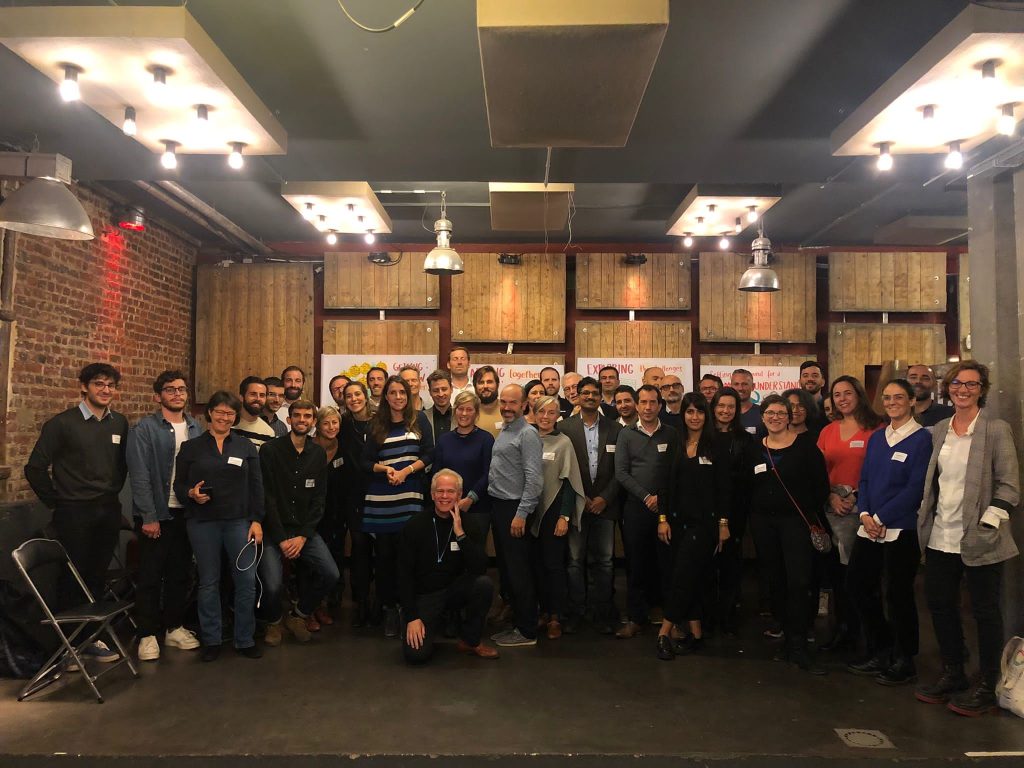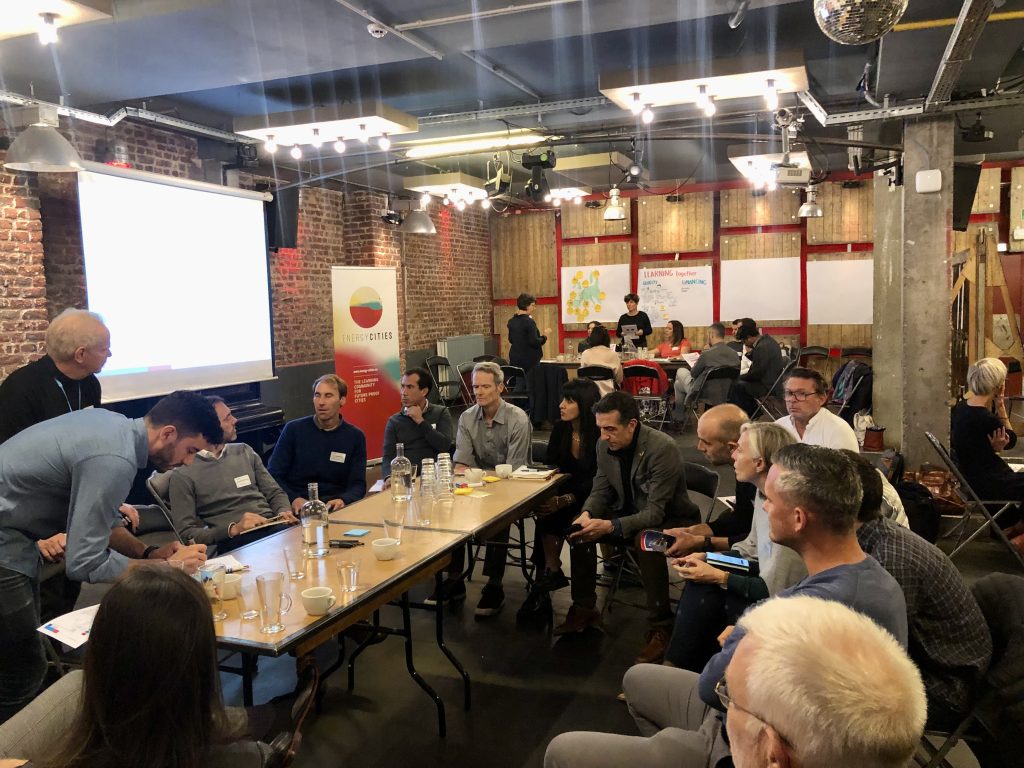A handful of (not so?) “crazy ideas” on how to make local one-stop-shops for home energy renovation thrive
The impetus given to local one-stop-shops by local authorities and EU funding programmes in their start-up phase is essential. But continuous support from all levels of governance to make them thrive in the long run is vital.
At the end of September, leaders of local one-stop shops met at the ‘Link Factory’ in the heart of the Saint-Gilles district of Brussels. Cold weather coming early this year, they are more than ever determined to pursue their mission of massifying home energy renovation.
Local one-stop-shops have the potential to deal with the urgency of mass energy renovation
‘Integrated home renovation services’ have the advantage of being physically close to homeowners who need to discuss their project with a trusted advisor and who are reassured by the ‘good vibes’ felt between them and artisans. No wonder. The investment costs are significant. In France, for example, the average cost of deep energy renovation (min. 40% energy savings achieved) amounts to 45,190 EUR for a single-family house and 14,660 EUR for a condominium lot. Homeowners appreciate impartial and trusted advisors who can draw up ambitious renovation and financial pans and oversee their implementation.
French one-stop-shops are leaders in the market for deep energy renovations. Others are seeing their success grow with the current energy crisis. One week earlier, the one-stop-shop ‘Hauskunft’ opened its new offices in the very centre of the city of Vienna. The project manager Stephan Hartmann could not hide his excitement when saying: “In Vienna, since the war in Ukraine started, so many people have become interested in energy renovation that we have completely dropped all the marketing and communication activities. We do not have time to answer all the phone calls we receive which is very positive but which soon might also become a problem.”
Every single euro from public subsidies should be given out on the condition that homeowners implement deep energy renovation plans.
The one-stop-shop teams are motivated, initial results are encouraging, the model makes sense. They have the potential to face the immense urgency of mass energy renovation. But today one-stop-shops are not viable without public subsidies. The question is: How can we make them viable in the long-run? It is precisely to answer this question that the one-stop shop leaders from eleven European countries decided to meet at the ‘Link Factory’.

Some (not so?) crazy ideas emerge from the discussions, starting with the suggestion that “Energy renovation should be mandatory for all homeowners who sell or rent their house”. Someone adds: “A green ‘CO2 credits box’ could be set up for every household to reward people’s actions in reducing energy and CO2 emissions.”.
The moderator asks: “And what if every single euro of public money invested in subsidies or low interest loans for energy renovation was given out on the condition that the homeowner implements a deep renovation plan?”.
Participants nod their heads and more suggestions are made: “Renovation specialists should be paid double what the experts on new building developments get!”, “Working conditions in the construction industry should be improved. The government could provide ‘a safety net’ for suppliers and builders who want to diversify their portfolio and get involved in one-stop-shop activities, reducing the risk of failure and loss of profits.”.
Then comes a storm of new ideas: “Wide-scale training programmes for builders and suppliers on deep energy renovation could be developed and offered by employment offices.”, “Even better: the governments could develop a civil service entirely dedicated to energy renovation. We would have ‘an army’ of renovators, mobilizing young people who are eager to learn and fight climate change!”.

Other proposals concern local authorities: “Local authorities should have an obligation to translate their climate goals into climate action at district level.” or “All local authorities should establish and finance a one-stop-shop for home energy renovation.” and “Municipalities, often responsible for elementary schools and high schools, could reach out to kids and teach them about the importance of energy renovation and the advantages of the one-stop-shop model. These children will buy houses in 10-15 years.”. Finally, one interesting business idea emerges: “One-stop-shops could secure their own financing model by buying old inefficient houses (unfit for rent or sale) for a low price, renovating them and reselling for a higher price.”
Today, many of these ideas might seem utopic but who knows? In the near future we might see them realized. The new Energy Performance of Buildings Directive would be a good starting point. The directive proposes mandatory retrofits for public and private buildings, supports one-stop-shops and changes the energy classification of buildings. But continued support and bolder policies and measures at all levels of governance will remain vital.

